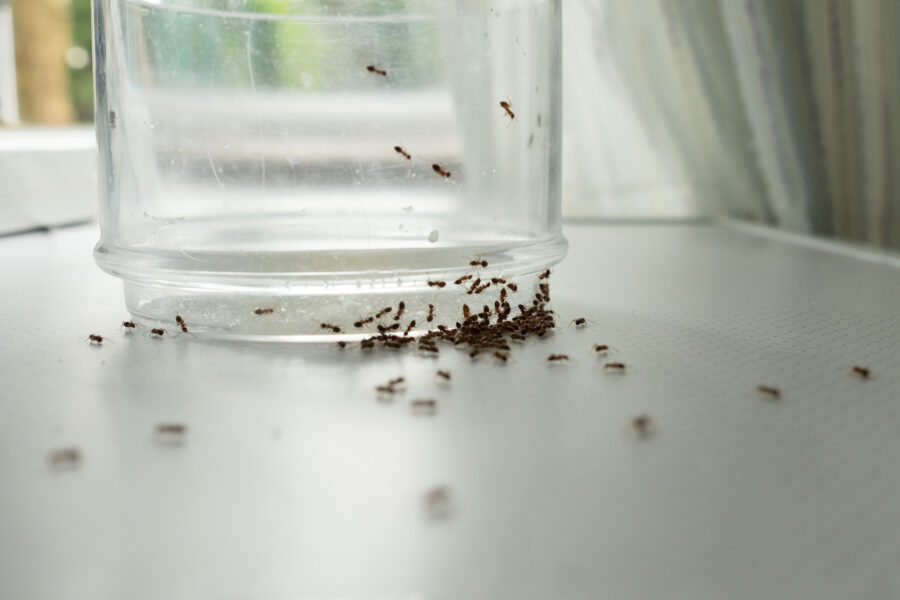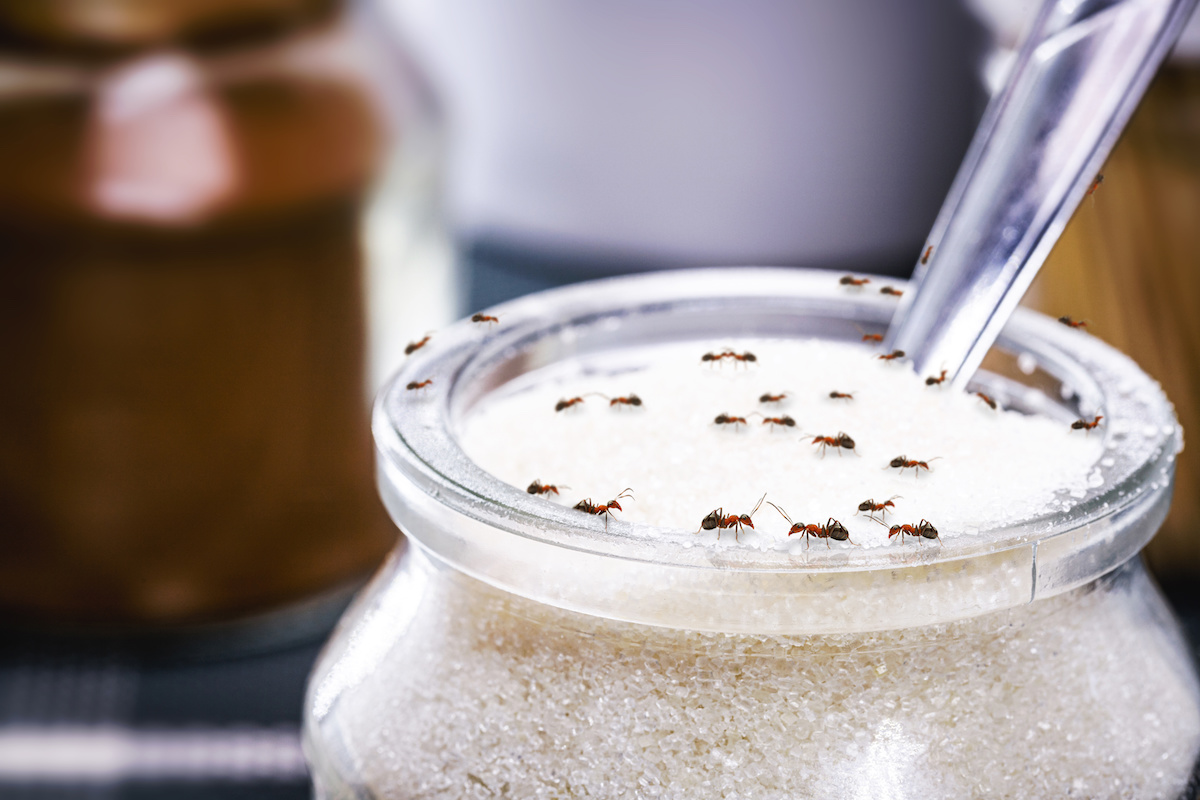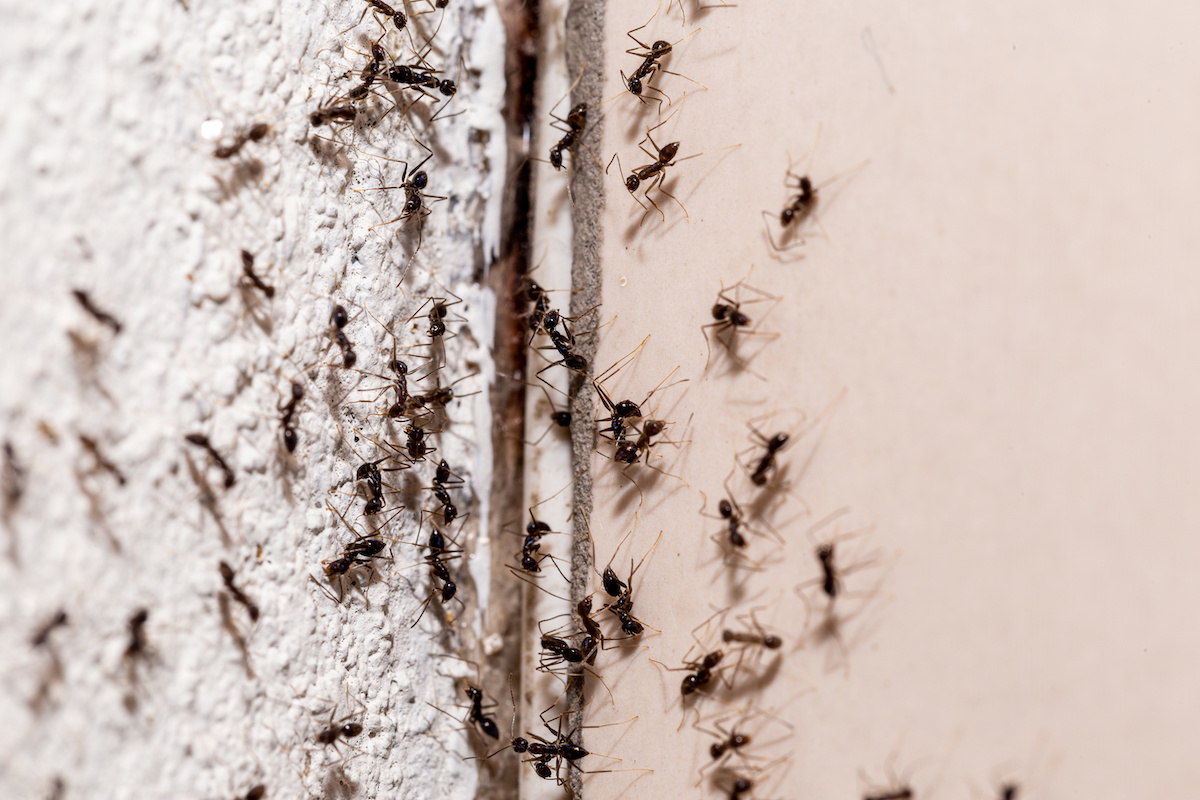
Ant infestations are a common nuisance for homeowners and businesses alike. These small but persistent pests can invade kitchens, bathrooms, and other areas in search of food and shelter. While ants are essential to the ecosystem, helping to aerate soil and break down organic material, they become unwelcome guests when they enter our living spaces. We often find ourselves asking, “What are the best ant control methods?”
At James River Pest Control, we understand the frustration that comes with an ant infestation and are here to help. This comprehensive guide provides the best ant control tips to keep your home or business ant-free.
James River’s Best Ant Control Tips
1. Identify the Ant Species
Firstly, effective ant control starts with identifying the species of ants you’re dealing with. Different ant species have varying behaviors, preferences, and nesting habits, which can influence the control methods you use. Some common ant species include:
- Argentine Ants: Small, dark brown ants that form large colonies and are commonly found indoors.
- Carpenter Ants: Large black or reddish-black ants that nest in wood and can cause structural damage.
- Odorous House Ants: Small brown or black ants that emit a foul odor when crushed.
- Pavement Ants: Small brown or black ants that nest in cracks in pavement and masonry.
Accurate identification can often be achieved through observation or by consulting with a pest control professional. When you know the species, it helps determine the most effective control methods and preventions.

2. Eliminate Food Sources
Secondly, ants enter homes and businesses primarily in search of food. Removing accessible food sources is one of the most effective ways to deter them.
- Keep Surfaces Clean: Wipe down countertops, tables, and other surfaces regularly to remove food crumbs and spills. Pay special attention to areas where food is prepared and consumed.
- Store Food Properly: Keep food in sealed containers, and avoid leaving pet food out for extended periods. Ants can easily infiltrate bags and boxes, so airtight storage is essential.
- Dispose of Garbage: Take out the trash regularly and ensure that garbage bins have tightly fitting lids. Clean the bins periodically to remove food residues that might attract ants.
3. Remove Water Sources
Thirdly, like all living creatures, ants need water to survive. Reducing moisture in and around your property can make it less attractive to ants.
- Fix Leaks: Repair any leaking pipes, faucets, or appliances promptly. Even small drips can provide a water source for ants.
- Use a Dehumidifier: In areas with high humidity, such as basements or crawl spaces, using a dehumidifier can help reduce moisture levels.
- Eliminate Standing Water: Ensure there is no standing water in sinks, tubs, or around the exterior of your property. Pay attention to areas where water might collect, such as plant saucers or clogged gutters.
4. Seal Entry Points
Fourthly, preventing ants from entering your home or business involves sealing potential entry points. Ants can enter through tiny cracks and gaps, so thorough inspection and sealing are necessary.
- Inspect and Seal Cracks: Examine the exterior of your property for cracks in the foundation, walls, and around windows and doors. Use caulk or other appropriate sealants to close these gaps.
- Install Door Sweeps: Place door sweeps on exterior doors to eliminate gaps at the bottom that ants could use to enter.
- Check Utility Lines: Ensure that gaps around utility lines, such as plumbing, electrical, and HVAC, are sealed.
5. Use Ant Baits
In any case, ant baits are an effective method for controlling ant populations. Baits attract ants, which then carry the poison back to their colony, effectively targeting the entire colony rather than just the visible ants.
- Place Baits Strategically: Place ant baits near ant trails, entry points, and areas where ants are commonly seen. Avoid placing baits directly in the path of household pets or children.
- Be Patient: Ant baits can take time to work as ants transport the bait back to the colony. It may take several days or weeks to see a significant reduction in ant activity.
- Use the Right Bait: Different ant species may prefer different types of bait (e.g., sweet vs. protein-based). Experiment with different baits to find the most effective one for your situation.
6. Employ Natural Remedies
Additionally, for those who prefer natural methods of ant control, several remedies can help deter and eliminate ants without the use of chemical pesticides.
- Vinegar: Wipe down surfaces with a solution of equal parts water and vinegar. Vinegar disrupts the ant’s scent trails, making it harder for them to navigate.
- Diatomaceous Earth: Sprinkle food-grade diatomaceous earth around entry points and along ant trails. This natural powder is harmless to humans and pets but lethal to ants.
- Essential Oils: Certain essential oils, such as peppermint, tea tree, and citrus oils, can repel ants. Mix a few drops with water and spray the solution around entry points and ant trails.
7. Maintain a Clean Yard
Ant control isn’t just about the inside of your home or business; it’s also important to manage the exterior environment to reduce the likelihood of ants entering.
- Trim Vegetation: Keep trees and shrubs trimmed back from the exterior of your property to prevent ants from using branches as bridges to enter.
- Clear Debris: Remove piles of leaves, wood, and other debris where ants might nest. Store firewood away from the house and off the ground.
- Maintain Landscaping: Regularly turn over mulch and soil in garden beds to discourage ants from nesting.
8. Professional Pest Control Services
While DIY methods can be effective, a professional pest control service offers the expertise and resources to handle severe or persistent ant infestations.
- Expert Assessment: Professional pest control technicians can accurately identify the ant species and locate nests, ensuring targeted and effective treatment.
- Advanced Treatments: Pest control services have access to more potent and specialized treatments that are not available to the general public.
- Ongoing Prevention: Many pest control companies offer ongoing maintenance plans to keep your property ant-free throughout the year.

9. Monitor and Maintain
Generally, regular monitoring and maintenance are key to preventing ant infestations from reoccurring. However, even after successful treatment, it’s important to remain vigilant.
- Routine Inspections: Periodically inspect your property for signs of ant activity and address any issues promptly.
- Sanitation Practices: Continue practicing good sanitation habits, such as keeping surfaces clean and storing food properly.
- Seal and Repair: Regularly check and maintain seals around windows, doors, and other potential entry points.
10. Educate Yourself and Others
Finally, understanding ant behavior and control methods can empower you to take proactive measures against infestations.
- Learn About Ants: Educate yourself about the different species of ants, their behaviors, and their nesting habits.
- Share Knowledge: Share what you’ve learned with family members, neighbors, and colleagues because it helps to promote a community-wide effort in preventing ant infestations.
Call Us for the Best Ant Control in Richmond
Ant control requires a combination of proactive measures, proper sanitation, and, when necessary, professional intervention. By identifying the ant species, eliminating food and water sources, sealing entry points, and using effective baits and natural remedies, you can significantly reduce the likelihood of an ant infestation in your home or business.
At James River Pest Control, we are committed to providing the best ant control solutions. Our team of experienced professionals is here to help you tackle any ant problem with expertise and care. If you’re struggling with an ant infestation or want to learn more about preventative measures, then contact us today for a consultation. Together, we can ensure your property remains ant-free and comfortable year-round.